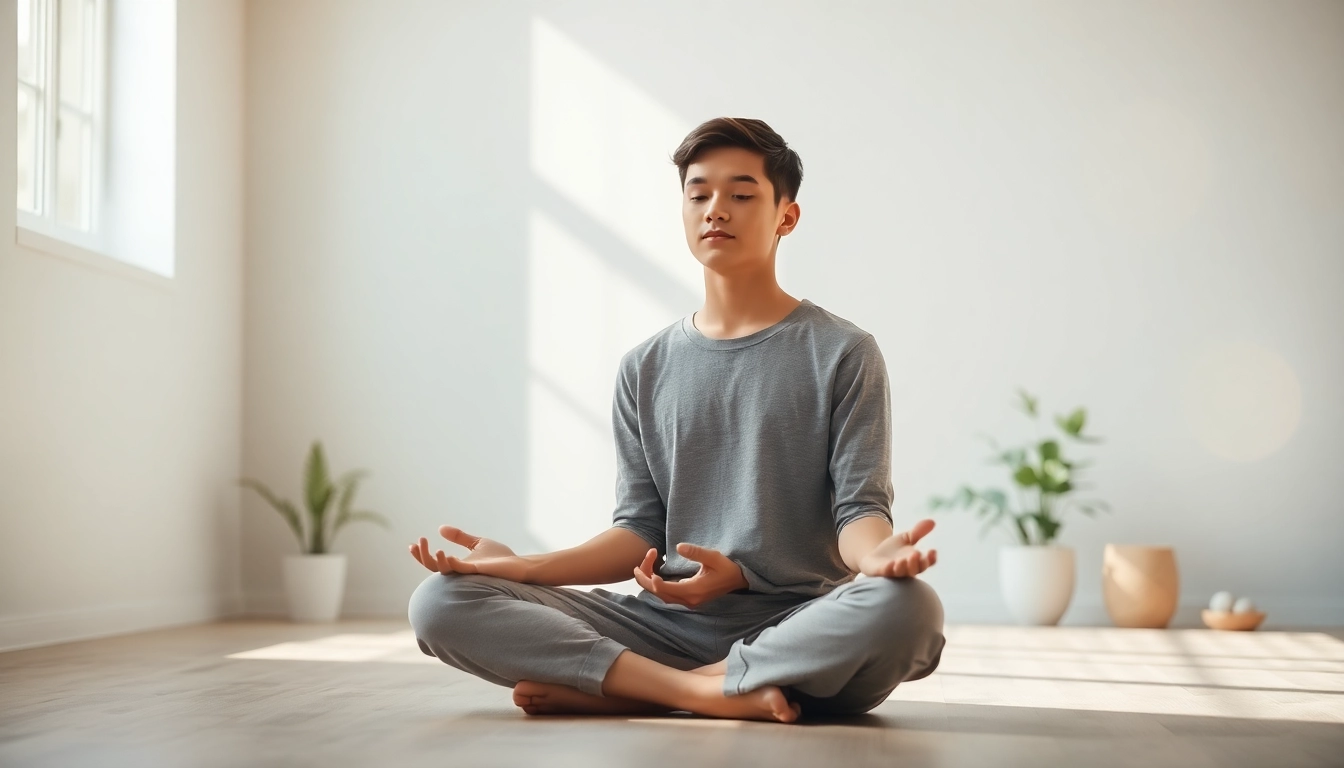Understanding Anxiety: Causes and Symptoms
Anxiety is a common yet complex emotional response that affects millions of people worldwide. It can manifest in various forms, often originating from a variety of psychological and environmental factors. Understanding the underlying causes and symptoms is crucial for effective management and treatment. In this article, we will delve into the intricacies of anxiety, explore ways of dealing with anxiety, and provide practical strategies to enhance your mental well-being.
What is Anxiety and How Does it Manifest?
Anxiety is a natural reaction to stress and can be characterized by feelings of worry, fear, or apprehension. It may manifest through a myriad of physical and emotional symptoms, such as:
- Increased heart rate
- Restlessness or feeling on edge
- Trembling or shaking
- Difficulty concentrating or mind going blank
- Fatigue or sleep disturbances
- Muscle tension
- Excessive sweating
These symptoms can range from mild uneasiness to debilitating anxiety disorders, affecting daily functioning and quality of life.
Common Triggers of Anxiety
Understanding what triggers anxiety is critical for effective management. Common triggers include:
- Stressful Life Events: Major changes like moving, job loss, or relationship issues can initiate anxiety.
- Health Concerns: Chronic illnesses or worrying about one’s health can lead to heightened anxiety.
- Environmental Factors: A chaotic living situation, work pressure, or financial struggles often play a significant role.
- Substance Abuse: Alcohol or drug use can exacerbate anxiety symptoms.
Recognizing these triggers can help individuals take proactive steps in managing their anxiety effectively.
The Importance of Recognizing Symptoms
Being aware of anxiety symptoms and their onset is vital. Early recognition can lead to timely intervention, significantly mitigating the impact of anxiety on one’s life. Keeping a journal to track anxiety episodes can help identify patterns and triggers, leading to more targeted coping strategies.
Practical Tips for Dealing with Anxiety
When living with anxiety, developing coping mechanisms can make a substantial difference. Practical strategies range from lifestyle changes to mental health practices that help in reducing anxiety levels.
Daily Habits that Help Manage Stress
Incorporating daily habits aimed at reducing stress can significantly alleviate anxiety. Some useful practices include:
- Establishing a Routine: Creating a daily routine can provide structure, which may reduce feelings of chaos and anxiety.
- Healthy Eating: A balanced diet rich in nutrients can affect mood and energy. Foods high in omega-3 fatty acids, antioxidants, and vitamins are particularly beneficial.
- Adequate Sleep: Prioritizing sleep hygiene can enhance mental health by ensuring you get restorative sleep.
Breathing and Relaxation Techniques
Learning specific breathing and relaxation techniques can be invaluable in managing anxiety. Practices include:
- Deep Breathing: Engaging in slow, deep breaths can activate the body’s relaxation response and reduce tension.
- Progressive Muscle Relaxation: This involves tensing and then relaxing each muscle group, which can promote overall relaxation.
- Meditation: Mindfulness meditation encourages focusing on the present moment, which can hinder anxious thoughts.
The Role of Exercise in Reducing Anxiety
Regular physical activity plays a critical role in anxiety management. Exercise produces endorphins, neurotransmitters that help improve mood. Studies have shown that aerobic activities, such as running or swimming, can effectively reduce anxiety symptoms. Aim for at least 30 minutes of moderate exercise most days of the week to reap the mental health benefits of physical activity.
Seeking Professional Help for Anxiety Management
If anxiety becomes overwhelming or persistent, seeking professional support is crucial. Mental health professionals can provide tailored guidance and therapeutic interventions.
Types of Professionals Who Can Help
Various healthcare providers can assist in the management of anxiety, including:
- Psychologists: They can offer therapy options, including cognitive behavioral therapy (CBT) to address destructive thought patterns.
- Psychiatrists: These medical doctors can provide diagnosis, treatment options, and medication as needed.
- Licensed Clinical Social Workers: They can provide therapy and offer support in navigating life’s challenges related to anxiety.
Therapies That Are Proven Effective
Several therapeutic approaches have demonstrated effectiveness in treating anxiety disorders:
- Cognitive Behavioral Therapy (CBT): CBT focuses on changing negative thought patterns and behaviors that contribute to anxiety.
- Exposure Therapy: This technique involves gradual exposure to feared situations, helping individuals confront and overcome fears.
- Acceptance and Commitment Therapy (ACT): ACT teaches acceptance of negative thoughts while committing to behaviors aligned with personal values.
When to Consider Medication
Medication may be appropriate for individuals who experience moderate to severe anxiety or when therapy alone is insufficient. Medications that are commonly prescribed include:
- Selective Serotonin Reuptake Inhibitors (SSRIs): These drugs help increase serotonin levels in the brain, which can improve mood and reduce anxiety.
- Benzodiazepines: Effective for short-term relief of anxiety symptoms but should be used cautiously due to the potential for dependence.
- Buspirone: An anti-anxiety medication that offers a lower risk of dependency compared to benzodiazepines.
It is essential to consult a healthcare provider to evaluate the risks and benefits of medication.
Self-Help Resources for Dealing with Anxiety
In addition to professional help, various self-help resources can provide support in managing anxiety.
Books and Online Resources
A wealth of literature focuses on anxiety management. Some recommended readings include:
- The Anxiety and Phobia Workbook by Edmund J. Bourne
- Feel the Fear and Do It Anyway by Susan Jeffers
- The Happiness Trap by Russ Harris
Online platforms and blogs dedicated to mental health can provide additional insights and community support.
Support Groups and Community Resources
Joining a support group can help individuals share experiences and coping strategies in a safe environment. Organizations like the Anxiety and Depression Association of America (ADAA) offer resources and connections to local support groups.
Mindfulness and Meditation Apps
Technology has made mindfulness and meditation more accessible. Apps like Headspace and Calm provide guided meditations specifically designed to reduce anxiety. Regular practice can enhance self-awareness and foster a sense of calm.
Long-Term Strategies for Managing Anxiety
Dealing with anxiety is often a long-term journey that requires ongoing effort and adaptation. Establishing sustainable strategies can help individuals manage symptoms more effectively.
Building a Support Network
Having a robust support network is crucial. Connect with family, friends, or support groups to share feelings and receive encouragement. Open communication about anxiety can help reduce feelings of isolation.
Developing a Personal Coping Plan
Create a personalized coping plan that outlines specific strategies that work for you. Include relaxation techniques, physical activities, and self-care routines tailored to your needs.
Continuous Self-Evaluation and Adjustment
Regularly assess the effectiveness of your coping strategies. What works today may not work tomorrow. Being adaptable and willing to try new techniques can be beneficial in managing anxiety long-term.









